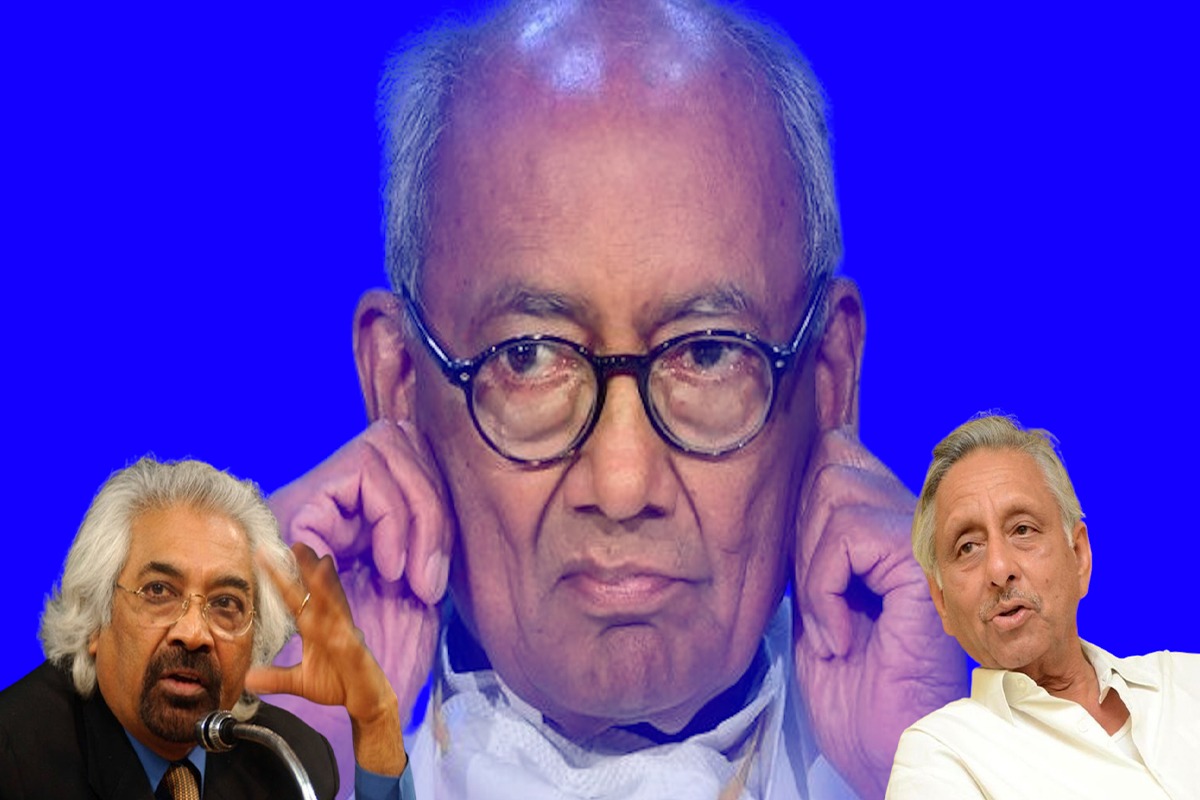Senior Congress leader Digvijay Singh on Monday stirred a row by demanding proof of India’s 2019 surgical strike on terrorist camps in Pakistan’s Balakot — putting the party in an uncomfortable position at a time Rahul Gandhi is toiling on the ground to revive its fortunes.
The party quickly distanced itself from the former Madhya Pradesh CM’s remark, with former Congress chief Rahul calling it “ridiculous”. The grand old party said Singh’s remarks are his own and do not reflect the party’s position.
This is not the first time when controversial and untimely statements of senior Congress leaders flushed the party’s efforts to gain lost grounds down the drain. Let us revisit the comments by senior party leaders like Sam Pitroda, Manishankar Aiyer, and Sandeep Dikshit that resulted in a massive uproar and ended up aiding BJP’s political interests.
The list of leaders who ended up severely damaging Congress’ poll prospects starts with diplomat-turned-politician Mani Shankar Aiyar, who just before the crucial 2014 Lok Sabha elections ridiculed BJP’s prime ministerial candidate, Narendra Modi for his history of selling tea.
Speaking at a Congress conclave, Aiyar said Modi could never become the prime minister and asked him to instead sell tea at the gathering. His ‘chai-wala’ barb against Modi helped the BJP so much that it came up with ‘chai pe charcha” campaign, which soon became a hit. The ill-timed remark also helped the BJP leader project himself as a person belonging to a humble background – further contributing to his already rising popularity.
In the polls that year, the Modi-led BJP registered a landslide victory decimating Congress to such an extent that it still struggles to come closer to the BJP’s figures.
But this scale of the damage was probably not enough for Aiyar. Three years later, during the 2017 Gujarat Assembly elections, he called PM Modi a “neech aadmi”. “He (Modi) is neech kism ka aadmi who has no sabhyata (civility).”
Aiyar has a long history of embarrassing his party. Back in 1998, Aiyar, who describes as a “freelance Congressman” called the then PM and BJP stalwart Atal Bihari Vajpayee – respected by many even in Congress – as ‘nalayak’ (a pejorative Hindi word loosely translated as incompetent).
Considered an eloquent speaker and writer, he once called Pakistan-based terror outfit LeT chief Hafiz Saeed as “Hafiz Saab”. In a TV interview, he said the peace talk between India and Pakistan can happen only when the Modi government falls and asked the neighbouring country – which killed thousands of India in terror attacks – to help topple the BJP dispensation.
In June 2017, Congress leader and son of late Delhi CM Sheila Dikshit, Sandeep Dikshit called then Army chief General Bipin Rawat – who later went on to become India’s first chief of defence staff – as “sadak ka gunda” (roadside goon).
Ahead of crucial Uttar Pradesh Assembly polls in 2012, former Union minister Salman Khurshid raked up the controversial Batla House encounter, saying then Congress president Sonia Gandhi “wept bitterly” when she saw the images from the encounter site. Addressing a rally in Azamgarh, he said that a demand for a judicial probe into the encounter was discussed with then prime minister Manmohan Singh and UPA chairperson Sonia.
Digvijaya Singh, whose recent comment against the Balakot strike has attracted BJP’s criticism, had also once called the 2008 Batla House gunfight as “fake”. Two suspected terrorists of Indian Mujahideen were killed in a gunfight with police in Delhi’s Batla House area.
Just before the 2019 general elections, Sam Pitroda, known as the father of India’s computer and IT revolution, sought to play down the plight of victims of the 1984 anti-Sikh riots in Delhi. “84 me jo hua, so hua,” he told reporters. The BJP lapped up the matter and claimed that “instructions to kill” in 1984 had come from the office of the then PM Rajiv Gandhi – a charge denied by Pitroda.
Many even hold Sonia Gandhi’s comments responsible for Congress’ bad performance in the 2007 Gujarat Assembly elections that saw then CM Modi getting another term. She had dubbed the BJP leader as “maut ka saudagar” (merchant of death) in a reference to the Gujarat riots.
Modi, known for his excellent oratory skills, had weaponised the attack on him, and shot back, saying Congress was trying to save the perpetrators of the parliament attack.
In 2016, Rahul Gandhi accused PM Modi of playing “khoon ki dalali”. He was addressing a rally at Delhi’s Jantar Mantar at the end of his Kisan Yatra across election-bound Uttar Pradesh. He said PM Modi took political mileage from the Army’s surgical strikes in Pakistani territory and the sacrifices of soldiers in Jammu and Kashmir.
The Indian Army carried out surgical strikes on September 29, 2016, against terrorist launch pads across the Line of Control (LoC) in the wake of a terror attack that left 19 soldiers dead in Jammu and Kashmir.

















